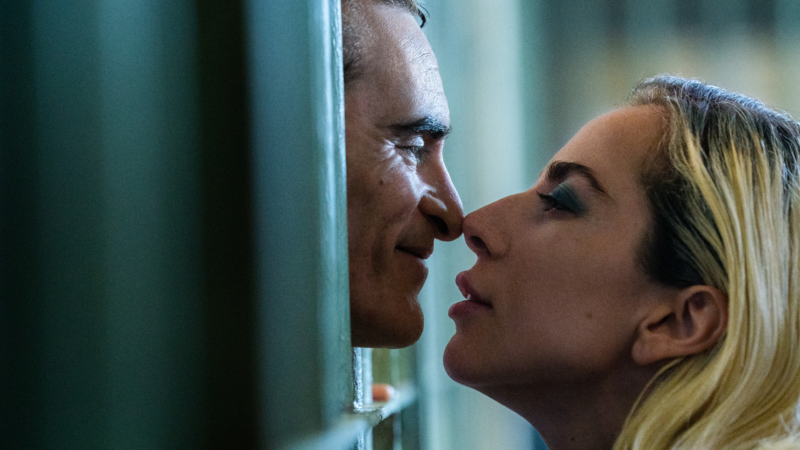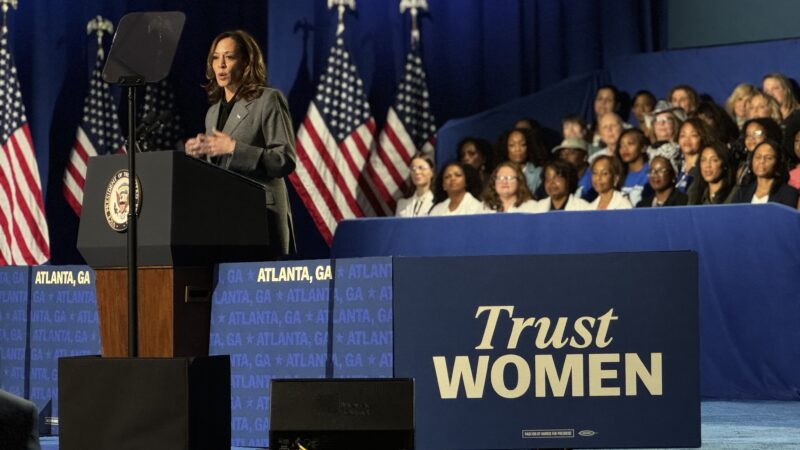‘I didn’t want it to end.’ Why director Todd Phillips came back with another ‘Joker’
After his 2019 Oscar-winning film Joker, director Todd Phillips knew he wanted to do more with the character — and with Joaquin Phoenix, who played the title role. The film centers on Arthur Fleck, a troubled man with a history of mental health problems, who eventually becomes Batman’s archnemesis.
“Oftentimes … as much as we enjoy making a movie, you’re kind of at the end counting down the days for it to be done,” Phillips says. “But on the first Joker, Joaquin and I didn’t want it to end.”
One iconic scene from Joker features Phoenix dancing on stairs, and moving as if he has music in his head. Phillips considered following up the film with a Broadway musical or a cabaret act, but then he stumbled upon a new idea: Why not make the sequel a movie musical?
Joker: Folie à Deux picks up two years after the first film, with Phoenix’s character in prison awaiting trial for murder. Lady Gaga co-stars as Lee Quinzel, a version of the Joker’s occasional partner-in-crime, Harley Quinn. The film touches on issues relating to mental health disorders, the insanity defense, and how the media can turn killers into celebrities.
Phillips says corruption is a main throughline of the film: “Movies tend to hold a mirror in general. … The judicial system is corrupt, the media is corrupt in this movie. … It’s also about the corruption of entertainment.”
Phillips made a name for himself in Hollywood with comedies, including The Hangover films, Road Trip and Old School. After two dark Joker films, he’s ready to return to some lighter material.
“The end of this year’s probably going to be wild. And it does feel like everybody just needs to calm down and laugh again,” he says. “I am ready to make another comedy, I think. I think that’s what the world needs.”
Interview highlights
On working with Joaquin Phoenix
As a director, all you want to do is be around great actors. All you want to do is watch great actors. I feel so blessed that I’ve spent the last five years … staring at Joaquin Phoenix’s face, talking to Joaquin Phoenix, working with Joaquin Phoenix. I think he’s the best at what he does. I think he’s on Mt. Rushmore, for sure, of his generation of actors. So I just feel so lucky.

On Lady Gaga shedding her pop star persona for the film
What I was amazed with Gaga most was this idea of, could she be vulnerable? Obviously, she could sing. Obviously, she brought music with her and all that stuff. And I’ve seen her be great in movies. And I was one of the producers on A Star Is Born, so I knew her a little bit. I knew what she was capable of as an actor. But the big question was: Can she be vulnerable in the way that Lee has to be vulnerable in this film? And, you know, she just brought that instantly. …
Being a huge singer is different than being an actor. Think of the biggest actor and they probably couldn’t sell 50,000 tickets at a giant stadium. But a singer can. So they’re famous on a different level. … She kind of blew our minds with the ability to just strip it all away.
On how he shot the singing scenes to make it feel alive
Often in musicals, the actors want to sing live on set, and they do sing live on set, but they’re usually singing to a background track of the music. But because Joaquin wants it to feel really alive and of the moment, he didn’t really necessarily want to decide what that arrangement would be. So we actually had a pianist live on stage in a soundproof little booth playing, so the actors were able to lead the music, not the arrangement, if that makes sense. … So Gaga’s pianist is in her ear, but he’s following her melodies and her lead, if that makes sense. Which really I don’t know who’s ever done that before. It was difficult because then we would backwards engineer the arrangement later in editing and put the music to it.
On being flexible in his filmmaking style, even in dramatic movies
I started being a filmmaker through documentaries. And that’s all documentaries are, is, you set out to make a movie and then the movie that you end with is very different than what you set out to make because the movie ultimately tells you what it wants to be. And then I went to comedy where you would try to write a joke eight months before you film it, and all of a sudden you have Will Ferrell on set and saying that joke to Vince Vaughn and it doesn’t land the way you thought it would land, but Will Ferrell, who’s a comedic genius, suddenly goes, “Well, what if I do this?” So it’s this flexibility I’ve always had with story that I think is what made me transition to working with somebody like Joaquin so kind of seamlessly. … I jokingly always say filmmaking is not math. It’s jazz, meaning it’s a living, breathing organism that is constantly changing shape.
I jokingly always say filmmaking is not math. It’s jazz, meaning it’s a living, breathing organism that is constantly changing shape.
Todd Phillips
On starting out in documentaries because he didn’t have enough life experience to write his own films
What experience do you have at 18 years old outside of, my parents were divorced? I was raised with a single mom, but I don’t know that I had the life experience that you then put into movies later on when you start writing movies. So I always saw documentaries as a way to kind of live life on fast forward and to get experiences, to go on the road [for the film Hated] with GG Allin, the punk rock singer for a year and be surrounded by that mayhem. … Being around that definitely ends up in your work later on. I mean, I think you could trace every movie between Hated and Joker and see a very clear connection between those two films.
Ann Marie Baldonado and Susan Nyakundi produced and edited this interview for broadcast. Bridget Bentz, Molly Seavy-Nesper and Beth Novey adapted it for the web.
Six weeks before Election Day, candidates blitz the Peach State
Just over a month before Election Day, presidential candidates continue to court Georgia voters.
How the U.S. is working to keep Chinese made cars from spying on Americans
The Department of Commerce is working on rules to keep Chinese-made vehicles from spying on Americans. Very few cars made in China are sold in the U.S., and the White House wants to keep it that way.
Hundreds of cowboys and cowgirls come together for one of the oldest Black rodeos
One of the oldest Black rodeos take place every year in Okmulgee, Okla. Cowboys and cowgirls came to celebrate it's 69th anniversary recently.
Birmingham police are still searching for suspects in Saturday’s mass shooting
Law enforcement in Birmingham, Ala., have put up a record $100,000 reward to help identify those who killed four people and injured 17 Saturday night.
Two detectives cracked the mysterious case of lead poisoning in New York and Bangladesh
Half of children in low- and middle-income countries have concerning levels of lead in their blood. A team of scientists and NYC detectives figured out one of the culprits -- lead was being added to turmeric to make it look brighter. They set out to solve the problem. Now, UNICEF and USAID are taking on the issue of lead poisoning with a $150 million dollar global initiative. We look at how the "lead detectives" cracked a global case involving the spice from Bangladesh. Reporter: Gabrielle Emanuel. Radio editor: Rebecca Davis. For ATC + Newscast (going Monday) NOTE >>>DIGITAL to publish Tuesday morning, Sept. 24.
A surgeon talks about the feat of performing 3,000 kidney transplants
NPR's Juana Summers talks with IU Health University Hospital's Dr. William Goggins, who has performed more than 3,000 kidney transplants, about his patients and this milestone.



